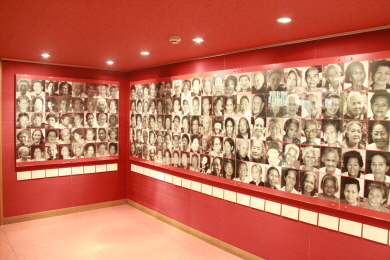
As part of a two-part overseas coverage special, Ewha Voice visited Tokyo to see what is being done in Japan in opposition to the recent Korea-Japan Agreement and in favor of the “comfort women” victims. In the previous issue, Ewha Voice focused on Japanese historian Yoshimi Yoshiaki who believes that his country has yet to offer a proper apology and adequate compensation for its past crimes. In order to branch out to the wider Japanese society, this issue will shed light on the movements of Japanese students and civil organizations regarding the ongoing history of “comfort women.”
Obstacles to spreading truth about “comfort women”
Working for the solution of the “comfort women” issue in Japan is accompanied by many hardships. One of the major obstacles is the threat posed by right-wing extremists in Japan. Ikeda Eriko, director of Women’s Active Museum on War and Peace (WAM) in Tokyo, has received their verbal threats ever since she began filming documentaries on “comfort women” for the NHK(Japan Broadcasting Corporation). In 2008, about 40 right-wing extremists gathered in front of the WAM museum and hurled invectives toward the building, calling the museum an “unforgivable anti-Japan den.”
“Fortunately, they have never gone further than verbal threats so far, and have never actually posed physical assault,” Ikeda said. “Still, I have advised the museum staff never to stay in the building alone, just in case.”
Yang Jin-ja, head of the National Act on Solving the “Comfort Women” Issue (NASCI), shares a similar experience. In 2011, in remembrance of the 1000th Wednesday Demonstration, NASCI brought together 1,300 people who stood hand in hand to make a human chain round Japanese Ministry of Foreign Affairs (MOFA) building in Tokyo as a symbolic gesture that the citizens of Japan were not turning a blind eye to the issue. During this demonstration, right-wing extremists formed an outer ring around the MOFA building and shouted insults at the peaceful demonstrators. Fortunately, there was no physical harm done to the NASCI.
“The police officers stood between us and them to keep things from getting too rough,” Yang explained. “They threw loud verbal assaults at us behind the police line.”
Extremist threats are not the only hardship that the citizens on the side of the “comfort women” victims face. Due to lack of appropriate education on this issue in the Japanese history curriculum, majority of the Japanese young generation is ignorant on the matter. Scraps of information that they are able to glean mostly come from the Internet, where there is often an overload of misleading information. Also, the Japanese media often portrays the “comfort women” issue as a purely political matter, misleading students to think of the issue as Korean government’s anti-Japanese movement.
“When I tell students about the truth of the ‘comfort women,’ they are very surprised to find out that it is a matter that is concerned with victims and assailants and not just a political intrigue,” Yang said, who also teaches in universities as a part-time instructor. “In most cases, students are completely uninterested in the issue. Also, when they do bother to find out more about it, they accept the issue as it is portrayed in the mainstream Japanese media: a political strategy that the Koreans are taking to bully the Japanese government.”
However, not all students are so falsely informed. Thanks to the continuous efforts of people like Ikeda, Yang, and some students accurately educated on Japanese modern history, many university students have come to know the truth about the “comfort women.” Still, even these students find it hard to talk to their friends about the issue in everyday circumstances.
“I avoid discussing ‘comfort women’ with friends who are not interested in the matter, for I think it could cause discord between us,” said Umegaki Midori, a senior of Waseda University.
Threats from right extremists and ignorance of the young generation thus remain as a big problem for those on the side of the “comfort women” victims.

